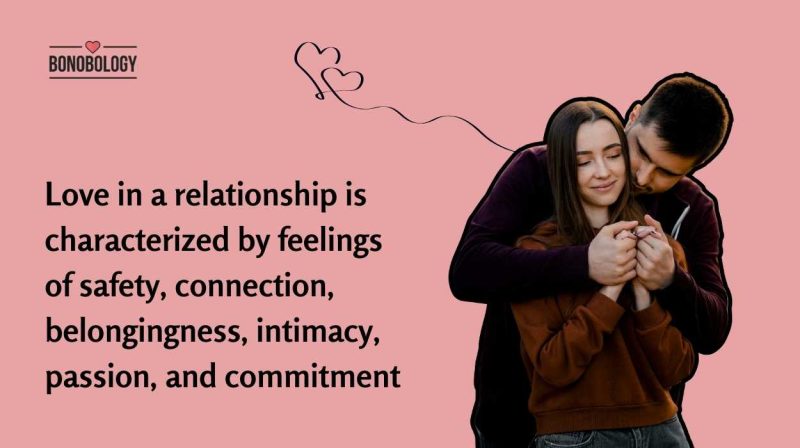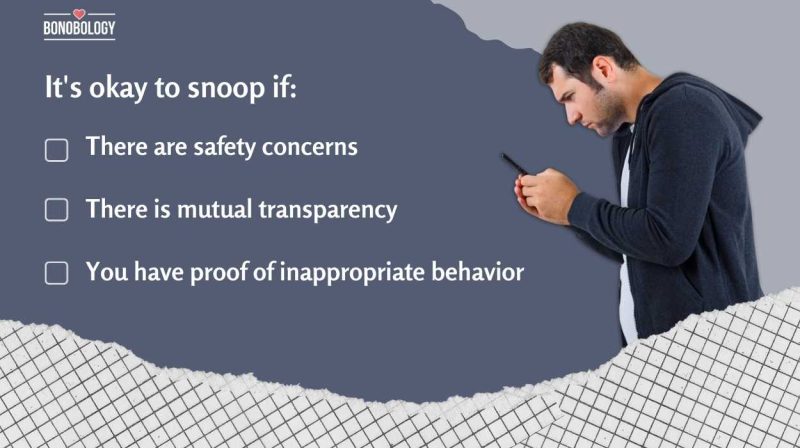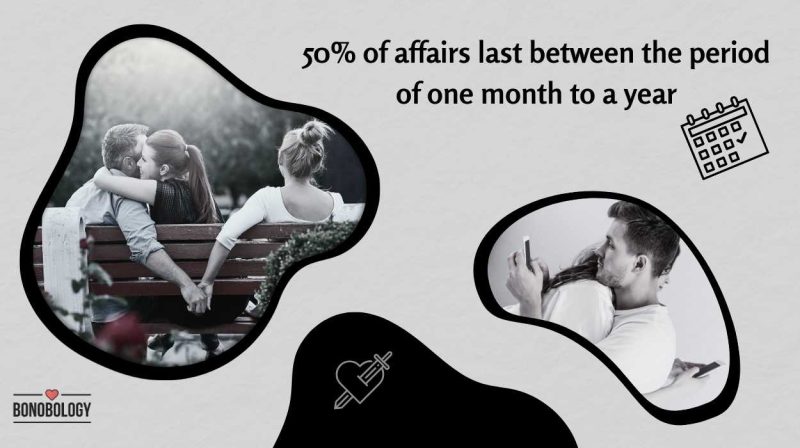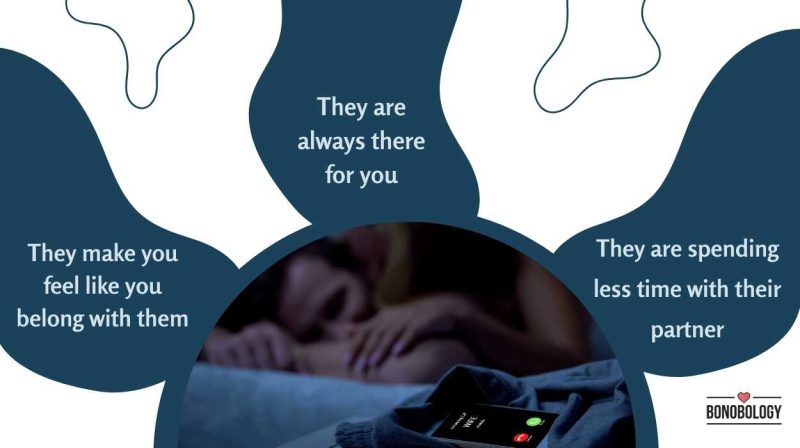You are here, trying to figure out why someone cheats. Chances are you have experienced a breach of trust. When such a thing happens, we are often left clueless about what must have happened. “Was it me? Or is it solely on them?”, “Can we survive this?”, “Will it happen again?”, “Once a cheater, always a cheater?” Right? Understanding some psychological facts about cheating can help resolve a lot of these doubts.
Infidelity is more complex than it seems at first glance. Lust isn’t necessarily the only thing that makes a person cheat and it’s not impossible to rebuild a relationship after an episode of infidelity. With the help of emotional wellness and mindfulness coach Pooja Priyamvada (certified in Psychological and Mental Health First Aid from Johns Hopkins Bloomberg School of Public Health and the University of Sydney), who specializes in counseling for extramarital affairs, let’s take a closer look at the complex phenomenon that is cheating.
What Is The Psychological Reason Behind Cheating?
Table of Contents
“But we were so sexually satisfied in our relationship, I can’t believe he cheated!” said Melinda, talking about her boyfriend Jason cheating on her despite not showing any signs of discontentment with the relationship. Though Jason’s pleas of “It just happened, I wasn’t planning on it” may not salvage the situation, the fact remains that what he’s saying might just be true. The scientific facts about cheating in relationships tell us that lack of sex isn’t always the reason for infidelity.
“Psychologically, there can be many reasons for an affair,” says Pooja. Though everything might seem to be going well on the surface, infidelity can shock the foundation of your relationship completely out of the blue. “Anger and resentment in the primary relationship, dominant polyamory traits in someone’s personality, low level of commitment, or stressors in life such as illness and financial difficulty from which people seek an escape can all play a role in cheating,” says Pooja.
“Sometimes, even body image and confidence issues may lead someone to pursue someone outside of the primary relationship,” she adds. When this ugly reality hits you like a bolt out of the blue, you’re likely not going to look into research on cheating or try to figure out what is the psychology behind cheating. But once the emotions begin to settle down, you are sure to wonder, why does it happen? What goes on inside the mind of a cheater? What makes a person take the plunge? Experts often point to these 8 most common reasons for infidelity in relationships:
- Anger
- Self-esteem issues
- Lack of love and intimacy
- Low commitment
- Need for variety
- Being neglected
- Sexual desire
- Situational cheating
Depending on the person’s personality traits, family dynamics, and even their past relationships, their reasons may vary. Moreover, the psychological facts about a cheating man might be different from that of a woman. The psychology behind cheating and lying is complex, but the more you educate yourself on the subject, the better equipped you’d be to deal with this blow.
If you’re currently struggling with coming to terms with being cheated on, cheating statistics won’t help numb the pain. In fact, uncovering the reason for infidelity might just make you relive the hurt all over again. Nonetheless, the only way to get over it is by not suppressing these feelings and getting the answers to any questions you may have about the mind of a cheater.
17 Psychological Facts About Cheating
Despite the stigma attached to infidelity, it’s surprising how common it is! But how common exactly? Let’s take a look at some facts about cheaters and cheating in relationships to find out, shall we? According to the American Psychological Association, around 20–40% of divorces in America are caused by infidelity. And though studies on infidelity will tell you that men cheat more, these studies also show a steady rise in the number of unfaithful women.
With all the nitty gritty in place let us take a deep dive into what actually is going on beneath the surface. You will be better equipped to handle a breach of trust in your relationship once you understand what is the psychology behind infidelity. Here are some fascinating myth-busting psychological facts about cheating:
Related Reading: An Overview Of Stages Of Guilt After Cheating
1. Cheating can “just happen”
Yes, it’s entirely possible that a person in a committed relationship, who was set in the ways of monogamy, might end up cheating due to situational factors. It can, so to speak, “just happen”. “Sometimes the opportunity to have a one-night stand or a no-commitment-no-risk casual hookup can lead to cheating. Situations conducive to cheating arise when people have the opportunity to have multiple partners, or when one has a partner who won’t find out about the affair. These circumstances can lead one to take that risk,” says Pooja. Think of the following scenarios:
- You’re in a long-distance relationship and haven’t seen each other in a long time
- An attractive person shows interest in you and you feel tempted
- You feel that it’s not an emotional bonding so it should not count as cheating
- There is alcohol involved, and you think you can blame it on your tipsy state
- You are going through a relationship low and wish to feel appreciated, seen, loved
Now imagine if all of these situations were combined into one whole scene. With such a backdrop, cheating can “just happen”. If you thought that there would be some elaborate mental layout of why people cheat, or why your partner has been monkey-branching all along, you could probably be a bit disappointed to find out that it can just be as mindless as the cheater says it was. That being said, it still doesn’t give the cheater an excuse.
2. Internet and social media have made cheating easier
Talking about situational factors affecting cheating, you read that right, the advent of the internet and social media has contributed to marital and relationship infidelity increasing manifolds. Allow us to explain how:
- Socially awkward people and introverts cheat easily on the internet due to lesser vulnerability
- People struggling with low self-esteem issues find it much easier to flirt online. Many people fake a different persona, some hide behind an alias
- Social media now allows a person to keep tabs on their ex, an old crush, or anybody who catches one’s fancy. If one is already struggling with commitment issues, here is the perfect excuse to “just look” or “only have harmless conversations”, engaging in white lies
- Many people think virtual cheating and online affairs are not a big deal. People end up emotionally cheating on their partners and causing serious damage to their relationship, many times without realizing or admitting to cheating at all

3. Cheaters can change
It’s time we bust this myth for good. Just because a person cheated once doesn’t mean they’re always going to be a cheater. If an addict can kick off the nastiest addiction and get clean, a person who cheated once can definitely honor the rules of monogamy. Of course, this only applies to those who actually want to change, and not those who think cheating is fun.
Chronic cheating, habitual cheating, or compulsive cheating still haven’t been scientifically declared as reasons for infidelity, so we can exclude these from this conversation for now. But, repeated cheating psychology usually revolves around deep-rooted issues that have not been addressed by the so-called offender. But given how it’s possible to turn your life around through sheer willpower and commitment, the whole “once a cheater, always a cheater” argument doesn’t really have a leg to stand on.

4. Cheating isn’t always about sex
Contrary to popular perception, a sexless relationship isn’t always the primary reason for infidelity. “One of the most overlooked truths about cheating in a relationship is that it’s not always about sex or sexual intimacy,” says Pooja, “Couples must evolve together in all spheres of life. Sexuality is just one of those spheres. When both partners are on different wavelengths, it can lead to cheating.”
Emotional bonds may develop elsewhere and replace the primary bond. “Often, people find something amiss emotionally or intellectually in their primary relationship, and the other partner fills that gap,” she adds. There can be many emotional drivers behind cheating:
- A ‘work spouse’ can end up getting a bit too close
- Best friends might just cross a few boundaries
- One may become emotionally attached to that friend who seems like the perfect person to complain to about your partner
- An AA or support group member may just get what you are going through in life better than your partner
- A classmate shares the same quirky hobby that everyone else refuses to take seriously
Emotional cheating may begin and stay as something platonic for the longest time. This is why catching its signs becomes difficult. Studies suggest that a psychological fact about cheating women is that they’re looking to fulfill an emotional need and are not always in the pursuit of sex. Though some would claim that sexual cheating hurts more than emotional cheating, doesn’t emotional cheating pose a much more imminent, greater threat to intimacy in the primary relationship? That’s something to think about.
Related Reading: Behavior After Getting Caught Cheating – 5 Things To Expect And 7 Things To Do
5. Men and women react differently to different types of cheating
Many survey-based studies have shown that men and women view infidelity differently. One of the interesting facts about cheating in relationships is that a man may react more strongly to sexual infidelity. Women, on the other hand, feel more triggered by emotional infidelity. Scientists have long tried to understand the reason behind this difference. Some have even zeroed it down to the evolutionary needs of each gender, but haven’t reached any common conclusion.
6. Many cheaters do it because they feel neglected
This is especially common in women cheaters. Have a cheating wife and want to understand why she is doing it? She has probably been feeling emotionally neglected in the marriage. A lack of emotional connection with the primary partner, and feeling under-appreciated, undervalued, ignored, belittled, disrespected, or misunderstood are various forms of emotional neglect in a relationship. Although this is more likely to sway a woman’s choice to cheat, even men can go astray if this happens at home.
7. People can cheat to seek revenge
This could be a surprising reason people have affairs, or you could say an immature reason to be adulterous. But it’s still true. Revenge cheating psychology is based on tit-for-tat behavior. People sometimes try to get back at their partners by cheating on them. One could do this to take revenge for a different or similar kind of cheating, or for some other hurt caused to them. Revenge cheating is an emotional response that uses a third person but is still centered on the primary partner. One can also see this as attention-seeking behavior.
8. Infidelity can be a result of mental health issues
There is a definite link between mental health issues and lack of control, or in other words, anxiety and depression leading to infidelity. Just the way people dealing with trauma and stress try to numb themselves with addictive substances, they can use deviant sexual behavior for the same purpose. People with bipolar disorders can experience hypersexuality. Individuals facing depression can look for the adrenaline rush that hiding and cheating can bring.
9. Cheaters don’t always fall out of love with their primary partner
Unhappiness in the primary relationship may rank among the top reasons people betray their partners but people in happy relationships can cheat too. Even when infidelity may have transpired due to emotional reasons, it doesn’t necessarily mean that the cheater has fallen out of love with their primary partner.
But can you cheat on someone you love? There is so much more that can lead a committed person to stray:
- A cheater may be deeply in love with their partner but still seek something outside of the primary dynamic
- Cheating may be a result of a need for thrill, a personality-based motivation
- It could be fueled by new relationship energy, which may be lacking in the primary relationship since the end of the honeymoon phase
- An opportunity can present itself at a weak moment
Related Reading: Dreams About Cheating On Your Partner? Here’s What It Actually Means
10. Cheaters don’t always wish to end their current relationship
Studies on the psychological facts about a cheating woman have proved that most women do not cheat to end their primary relationship. For whatever reason, if a woman decides to cheat, she does it to supplement her primary relationship with an affair, not to end it. Perhaps even for those involved in habitual cheating, studies tell us that they may not really be looking to end their relationship. The driving factor here may be polyamorous tendencies or a low level of commitment.
11. An affair can stem from a strong desire to reinvent yourself
Gleeden, a dating website for married people, conducted a survey of married women and found out that women had a different sexuality with their lovers than with their husbands. This clearly shows that people can be different versions of themselves with different people, almost literally leading a double life.
This is reason enough why people cheat to look at themselves in a new light. It is an opportunity to present yourself again as a completely different person to an affair partner. It is an opportunity to rid yourself of past baggage or come out of one’s existing image in the eyes of an old partner. A new amour on the side is a clean slate to make fresh etchings on.

12. Some people cheat due to sexual incompatibility
When couples don’t find sexual satisfaction in their primary relationships due to mismatched libidos, incompatible kinks, or sexual fantasies, there is a higher chance of them looking for sex elsewhere. The need to fulfill physical intimacy can be a huge motivation for promiscuity.
Although one may think this would be a psychological fact about a cheating man, this study found that women were more likely to “engage in infidelity when they were sexually incompatible with their partner, which may point to the interconnection of sexual and relationship factors in increasing the possibility of infidelity”.
13. Many others cheat due to sexual anxiety
Guess you wouldn’t have expected to hear such facts about cheaters. You would expect that cheaters are just more sexually confident and adventurous than your average Joe. But what if we said, the opposite can also be true? Some people cheat because they suffer from sexual performance anxiety and want a less risky, more anonymous space for sex so that they don’t have to worry about the outcome.
That’s just one of the curious findings of a new study on the factors that predict infidelity. These people tend to look for one-night stands or short-term flings so that even if they fail at the deed, they don’t have to worry about facing this person ever again.
14. Infidelity isn’t always planned
If they cheated, they must’ve been thinking about it since day one, right? They must’ve planned the whole thing out in their head. Can’t find any hotel reservations under their name? Well, they probably used a fake name, they’ve been thinking this through forever, right?
No, not really. “Not everybody makes a flowchart to cheat,” says Pooja, “More often than not, it is the by-product of a lot of circumstantial factors that lead committed people to look outside their primary relationship. These factors can be emotional, intellectual, and sometimes plain practical like not being able to spend enough quality time with one’s partner, or losing interest in the relationship, etc.”
15. Cheating doesn’t always end a relationship
If insights about the psychology of cheating tell us that a cheater can change, it then follows that a relationship can definitely survive such a blow. It may feel like the bond you two share has now been nullified because your partner took another lover. And rightly so, too. The trust has been shattered, and building it back up might appear impossible. But as you’ll soon realize, that’s not the case.
“Many relationships survive affairs, sometimes even multiple affairs. In fact, many couples enter a better phase of their relationship after recovering from an affair. Cheating can mean a lot of things in different relationships and need not end them,” says Pooja.
Forgiving someone who cheated is not the easiest thing to do in the world. But since the mindset behind cheating and lying shows us that a cheater doesn’t necessarily remain a cheater for the rest of their life, rebuilding trust is absolutely possible in any dynamic.
Related Reading: 8 Expert Tips To Survive A Marriage Crisis
16. Working through infidelity can make a relationship stronger
Experiencing infidelity in a relationship can be extremely devastating for a couple. Different studies give different figures but it is safe to admit that half or 50% of marriages that suffer this blow end in separation or divorce. This means that half of them survive the marital crisis. Experts believe that working through infidelity can bring a couple closer, and couples that succeed in weathering this storm emerge stronger.
That’s some good news toward the end of this article. If you are dealing with infidelity in your marriage, seek professional help, give your relationship the needed TLC and quality time, and give it the commitment it needs and your relationship will not only survive, it can thrive.
17. Bonus random cheating facts
Now that we’ve busted a few myths that people usually hold about cheaters, we may as well take a look at some interesting cheating numbers that most people don’t usually know. Let’s dive into some cheating facts:
- Studies suggest that women are cheating 40% more than they used to, in the last half-century
- A study found that men are more likely to cheat before they reach a milestone birthday, that is, at the ages of 29, 39, 49, and 59
- A study finds that financially dependent spouses are more likely to cheat on their partners. In the case of a wife who is dependent on her husband financially, there’s about a 5% chance that she will cheat. In the case of a financially dependent man on his wife, there’s a 15% chance he will cheat
- A common psychological fact about a cheating man and woman is that they are more likely to cheat with close friends, a study finds
- And that older people generally more likely to cheat than younger people
It’s safe to say that the scientific facts about cheating based on empirical data and the myths we busted definitely do raise an eyebrow or two. The phenomenon is often layered, and can also sometimes be a mindless activity that literally “just happened”.
Key Pointers
- The psychology behind infidelity is often nuanced, and the myths we believe don’t necessarily hold true. Understanding psychological facts about cheating can help navigate infidelity in a relationship
- There can be many reasons for infidelity, like self-esteem issues, adjustment, and relationship issues, lack of love, low commitment, need for variety, not being on the same page regarding sexual desires, or feeling neglected in the relationship
- Cheating in a relationship isn’t necessarily planned, nor does it mean that the primary relationship is bound to fail
- People in happy relationships can end up cheating as well, and the infidelity may not always be sexual in nature
Infidelity in a relationship is a highly subjective and prickly subject. What feels like a betrayal for one person may be harmless flirting for someone else. Hopefully, the points we listed out today will help you understand infidelity, yourself, your partner, and your relationship a bit more. You need to be on the same page regarding infidelity with your partner and define it for your relationship in the first place.
If you’re currently going through infidelity or something of the sort in your relationship, couple’s therapy can help you navigate these turbulent waters. Bonobology has a multitude of experienced counselors who’d be willing to help you through this trying time. Reach out for help.
This article has been updated in April 2023.
FAQs
Depending on the personality of a person, their family dynamic, ethics, and other factors, the psychology of cheating and reasons for infidelity vary. However, the reason behind cheating is often among these six factors: a lack of love, low commitment, need for variety, being neglected, sexual desire, and situational cheating.
Though it may be difficult to pin down common personality traits, research suggests that those who have difficulty in controlling their impulses, work long hours, or have narcissistic tendencies may be more prone to cheating on their partners.
The psychology of cheaters can vary based on why they cheated. For example, if they’ve cheated because they wanted to hurt their partner, they may be considered sadistic and disloyal by people. On the other hand, if situational factors led to an otherwise trustworthy partner cheating, they may be considered as someone who cannot control their impulses.
How To Forgive Yourself For Cheating And Not Telling – 8 Helpful Tips
Your contribution does not constitute a charitable donation. It will allow Bonobology to continue bringing you new and up-to-date information in our pursuit of helping anyone in the world to learn how to do anything.






















Featured
What Leo Man Dislikes In A Woman And What He Likes
How To Increase Love In A Relationship: 11 Tips From A Therapist
11 Signs Someone Is Hiding Something On Their Phone
10 Things To Look For When Snooping Through A Phone
Should I Breakup With My Girlfriend? Quiz
Gut Feeling He’s Cheating But No Proof Quiz
Dreams About Spouse Cheating — What They Mean And What You Can Do
How To Apologize For Cheating – 11 Expert Tips
How To Tell If Your Partner Is Lying About Cheating?
The 7 Types Of Cheaters – And Why They Cheat
The 3 Types Of Men Who Have Affairs And How To Recognize Them
What Is Revenge Cheating? 7 Things To Know
How To Stop Overthinking After Being Cheated On – Expert Recommends 7 Tips
10 Smart Ways To Punish A Cheating Boyfriend Emotionally
11 Physical Signs He Is Cheating On You
15 Signs Your Affair Is Over (And For Good)
How To Make A Cheating Boyfriend Feel Bad – 11 Surefire Ways
15 Undeniable Signs Your Affair Partner Loves You
How To Stop Cheating In A Relationship – 15 Expert Tips
Expert Lists Out 9 Effects Of Cheating In A Relationship